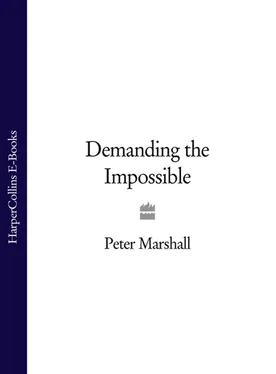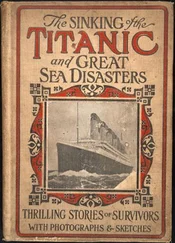Rudolf Rocker has provided the most incisive condemnation of the Nation-State in his vast study Nationalism and Culture (1937). For Rocker, the nation is not the origin but the product of the State: ‘ It is the state which creates the nation, and not the nation the state ‘. The nation cannot therefore exist without the State. But he does not deny local feelings of attachment to a culture and land. He distinguishes between a people, which the ‘natural result of social union, a mutual association’ brought about by a common language and particular conditions of living, and the nation, which is the ‘artificial struggle for political power’. 71 A people always consists of a community with narrow boundaries, while a nation often encapsulates a whole array of different peoples who have by more or less violent means been pressed into the frame of a common state. He therefore condemned nationalism for trying to create artificial barriers and disturbing the organic unity of the community.
Gustav Landauer, who was strongly influenced by Proudhon, made an interesting attempt to combine nationalism and anarchism. He contrasted like Rocker the ‘Community’ against the ‘State’; the people in a statist society do not find themselves together in the organism of true community. Community however exists alongside and outside the State, but it has not yet been fully realized. A free community is therefore not the founding of something new, but ‘the actualization and reconstitution of something that has always been present, which exists alongside the state, albeit buried and laid waste’. 72 It is necessary to develop this community made from the union of persons and families into various communities, and communities into associations.
The ‘nationhood’ of a people, according to Landauer, remains once ‘Statehood’ has been superseded. Nationhood consists of the closeness of people together in their way of life, language, tradition, and memories of a common fate and works to create real communal living. It follows that ‘nothing but the rebirth of all peoples out of the spirit of regional community can bring salvation’. 73 But while Landauer wanted to revive old communal traditions and dissolve the State, his vision was not parochial. It would seem that the essential features of Rocker’s concept of a ‘people’ are to be found in Landauer’s concept of the ‘nation’. The nation for Landauer is not an artificial whole but a community of communities. The individual moreover should not identify only with his nation, but see it as one ring in the widening circle of humanity.
The anarchists have thus mounted the most consistent and rigorous critique of the State, whether in its liberal, social democratic, or Marxist form. While the State may have been intended to suppress injustice and oppression, they argue that it has only aggravated them. It fosters war and national rivalries; it crushes creativity and independence. Governments, and the laws through which they impose their will, are equally unnecessary and harmful. At the same time, their confidence in natural order leads anarchists to believe that society will flourish without imposed authority and external coercion. People thrive best when least interfered with; without the State, they will be able to develop initiative, form voluntary agreements and practise mutual aid. They will be able to become fully realized individuals, combining ancient patterns of co-operation with a modern sense of individuality. The anarchist critique of the State not only questions many of the fundamental assumptions of political philosophy but challenges the authoritarian premisses of Western civilization.
ANARCHISM IS A PHILOSOPHY in its own right. Although as a social movement it has developed a wide variety of strands from extreme individualism to communism, all anarchists share certain common concerns. They offer a critique of the existing order, a vision of a free society, and a way of moving from one to another. Above all, they reject all coercive forms of external authority in order to achieve the greatest degree of freedom and equality. In the process they illuminate many of the fundamental principles of moral and political philosophy. While they may not always be consistent, they cannot be accused of having a naive or simplistic view of the great ideals of liberty and equality launched by the French Revolution.
It is usual to see absolute freedom as the anarchists’ supreme ideal and their central commitment. Sébastien Faure wrote in the twenties: ‘The anarchist doctrine may be resumed in one word: liberty’. 1 For Herbert Read freedom is ‘the value of all values’. 2 Anarchists certainly see freedom as a permanent and necessary factor in the life and progress of humanity, as an intrinsic good without which it is impossible for human beings to reach their full stature. The American individualist Josiah Warren speaks for most anarchists when he writes: ‘Man seeks freedom as the magnet seeks the pole or water its level, and society can have no peace until every member is really free.’ 3
As philosophers are only too well aware, the notion of freedom can be a conceptual labyrinth and it is important to consider its different meanings. Anarchists wish to expand human freedom in the negative sense of being free from restraint. Most anarchists also see freedom in the positive sense of being free to do what one likes and to realize one’s full potential. 4 But freedom is always a triadic relation and involves not only freedom from something in order to do something, but also the freedom of certain agents. 5 In the anarchists’ case, they are not concerned with the freedom of a particular class or elite, but the freedom of all human beings. They recognize that the freedom of all is the necessary condition for the freedom of each; as Bakunin declared, ‘Man is truly free only among equally free men.’ 6
Herbert Read distinguishes between ‘liberty’ as a political ideal, which is expressed in social organization, and ‘freedom’ in which man achieves spontaneity and creativity. 7 While this verbal distinction is peculiar to English, most anarchists reject the Roman sense of libertas as popular government embodied in a republican constitution. Their principal concern is with freedom from external political authority. They do not accept like Locke that the State is necessary to protect individual liberty. They equally reject Rousseau’s notion of civil liberty in which one can be legitimately forced to obey the laws one makes for oneself. They have no truck with Hegel’s idealist definition of liberty as ‘necessity transfigured’ so that the individual somehow realizes his ‘higher self in obeying the law of the State.
On the contrary, anarchists believe that genuine freedom can only be achieved in a society without the State. They therefore embrace the traditional socialist freedoms such as freedom from want and insecurity as well as the liberal freedoms of expression, thought, assembly and movement. When they talk about economic freedom, they mean both the liberal sense of freedom from the economic controls of the State and the socialist sense of freedom from economic hardship. The alleged ‘freedom’ of the few on the other hand to exploit and to command is not a desirable form of freedom since it leads to oppression. They are thus the most coherent and consistent advocates of freedom.
Some anarchists have taken up Rabelais’ motto ‘Do what you will!’ Faure insists that ‘the man who does not do what he wants, only what pleases him and which suits him, is not free.’ 8 But few anarchists believe that one should do what one wants whatever the consequences. Elisée Reclus sees in anarchism the ‘right to act according to one’s own agreement, to do “what one wants”’, but adds immediately ‘while associating one’s will to those of other men in all collective works’. 9 Similarly, Godwin makes a distinction between freedom and licence. He rejects the positive right to do as we please on the grounds that we have a permanent duty to contribute to general happiness. Freedom from constraint (except that of reasons presented to the understanding) is of the utmost importance, but ‘moral independence’ is always injurious. 10 We should therefore be free from political constraints, not moral constraints. Godwin’s position resembles Spinoza’s description of a free man as one who lives according to the dictates of reason alone. Bakunin went even further to argue that the idea of absolute independence from natural law is a ‘wild absurdity’, the brainchild of metaphysicians: ‘absolutely self-sufficient freedom is to condemn oneself to nonexistence’. 11 As with Marx and Engels, freedom for Bakunin involves control over ourselves and over external nature which is founded on a knowledge of natural law.
Читать дальше












